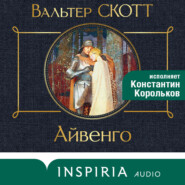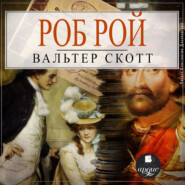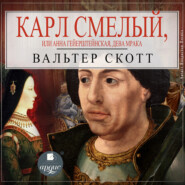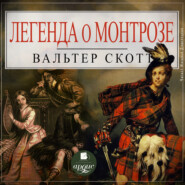По всем вопросам обращайтесь на: info@litportal.ru
(©) 2003-2024.
✖
Rob Roy
Настройки чтения
Размер шрифта
Высота строк
Поля
Say, then, that he was wise as brave,
As wise in thought as bold in deed;
For in the principles of things
He sought his moral creed.
Said generous Rob, “What need of Books?
Burn all the statutes and their shelves!
They stir us up against our kind,
And worse, against ourselves.
“We have a passion, make a law,
Too false to guide us or control;
And for the law itself we fight
In bitterness of soul.
“And puzzled, blinded, then we lose
Distinctions that are plain and few;
These find I graven on my heart,
That tells me what to do.
“The creatures see of flood and field,
And those that travel on the wind
With them no strife can last; they live
In peace, and peace of mind.
“For why? Because the good old rule
Sufficeth them; the simple plan,
That they should take who have the power,
And they should keep who can.
“A lesson which is quickly learn’d,
A signal through which all can see;
Thus, nothing here provokes the strong
To wanton cruelty.
“And freakishness of mind is check’d,
He tamed who foolishly aspires,
While to the measure of his might
Each fashions his desires.
“All kinds and creatures stand and fall
By strength of prowess or of wit;
’Tis God’s appointment who must sway,
And who is to submit.
“Since then,” said Robin, “right is plain,
And longest life is but a day,
To have my ends, maintain my rights,
I’ll take the shortest way.”
And thus among these rocks he lived,
Through summer’s heat and winter’s snow
The eagle, he was lord above,
And Rob was lord below.
We are not, however, to suppose the character of this distinguished outlaw to be that of an actual hero, acting uniformly and consistently on such moral principles as the illustrious bard who, standing by his grave, has vindicated his fame. On the contrary, as is common with barbarous chiefs, Rob Roy appears to have mixed his professions of principle with a large alloy of craft and dissimulation, of which his conduct during the civil war is sufficient proof. It is also said, and truly, that although his courtesy was one of his strongest characteristics, yet sometimes he assumed an arrogance of manner which was not easily endured by the high-spirited men to whom it was addressed, and drew the daring outlaw into frequent disputes, from which he did not always come off with credit. From this it has been inferred, that Rob Roy was more of a bully than a hero, or at least that he had, according to the common phrase, his fighting days. Some aged men who knew him well, have described him also as better at a taich-tulzie, or scuffle within doors, than in mortal combat. The tenor of his life may be quoted to repel this charge; while, at the same time, it must be allowed, that the situation in which he was placed rendered him prudently averse to maintaining quarrels, where nothing was to be had save blows, and where success would have raised up against him new and powerful enemies, in a country where revenge was still considered as a duty rather than a crime. The power of commanding his passions on such occasions, far from being inconsistent with the part which MacGregor had to perform, was essentially necessary, at the period when he lived, to prevent his career from being cut short.
I may here mention one or two occasions on which Rob Roy appears to have given way in the manner alluded to. My late venerable friend, John Ramsay of Ochtertyre, alike eminent as a classical scholar and as an authentic register of the ancient history and manners of Scotland, informed me, that on occasion of a public meeting at a bonfire in the town of Doune, Rob Roy gave some offence to James Edmondstone of Newton, the same gentleman who was unfortunately concerned in the slaughter of Lord Rollo (see Maclaurin’s Criminal Trials, No. IX.), when Edmondstone compelled MacGregor to quit the town on pain of being thrown by him into the bonfire. “I broke one off your ribs on a former occasion,” said he, “and now, Rob, if you provoke me farther, I will break your neck.” But it must be remembered that Edmondstone was a man of consequence in the Jacobite party, as he carried the royal standard of James VII. at the battle of Sheriffmuir, and also, that he was near the door of his own mansion-house, and probably surrounded by his friends and adherents. Rob Roy, however, suffered in reputation for retiring under such a threat.
Another well-vouched case is that of Cunningham of Boquhan.
Henry Cunningham, Esq. of Boquhan, was a gentleman of Stirlingshire, who, like many exquisites of our own time, united a natural high spirit and daring character with an affectation of delicacy of address and manners amounting to foppery.
(#ulink_c2ae4a0a-2a33-5fc8-ae95-12f81ed31d52)
He chanced to be in company with Rob Roy, who, either in contempt of Boquhan’s supposed effeminacy, or because he thought him a safe person to fix a quarrel on (a point which Rob’s enemies alleged he was wont to consider), insulted him so grossly that a challenge passed between them. The goodwife of the clachan had hidden Cunningham’s sword, and while he rummaged the house in quest of his own or some other, Rob Roy went to the Shieling Hill, the appointed place of combat, and paraded there with great majesty, waiting for his antagonist. In the meantime, Cunningham had rummaged out an old sword, and, entering the ground of contest in all haste, rushed on the outlaw with such unexpected fury that he fairly drove him off the field, nor did he show himself in the village again for some time. Mr. MacGregor Stirling has a softened account of this anecdote in his new edition of Nimmo’s Stirlingshire; still he records Rob Roy’s discomfiture.

















